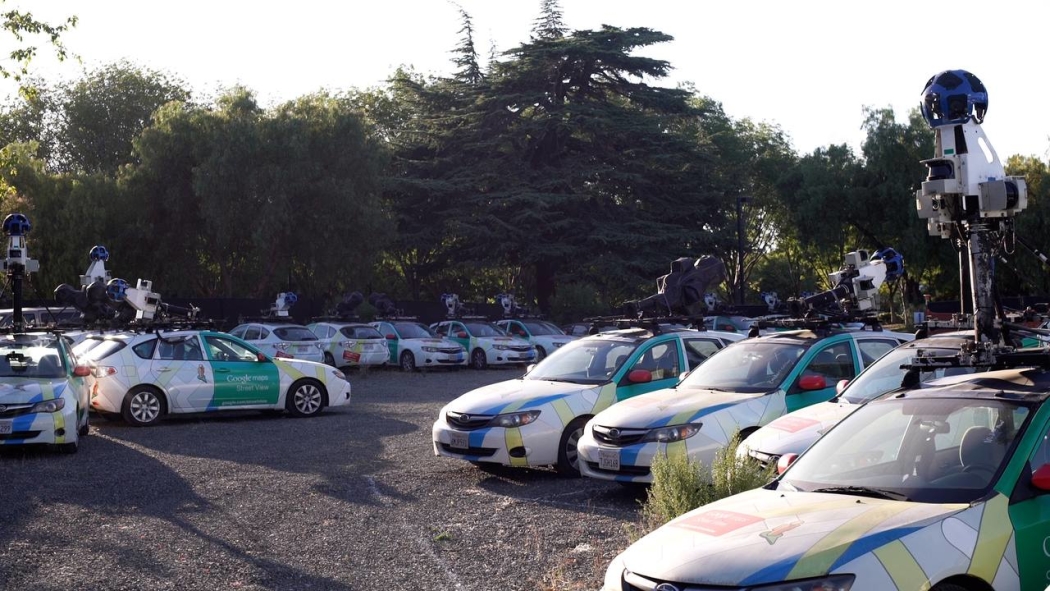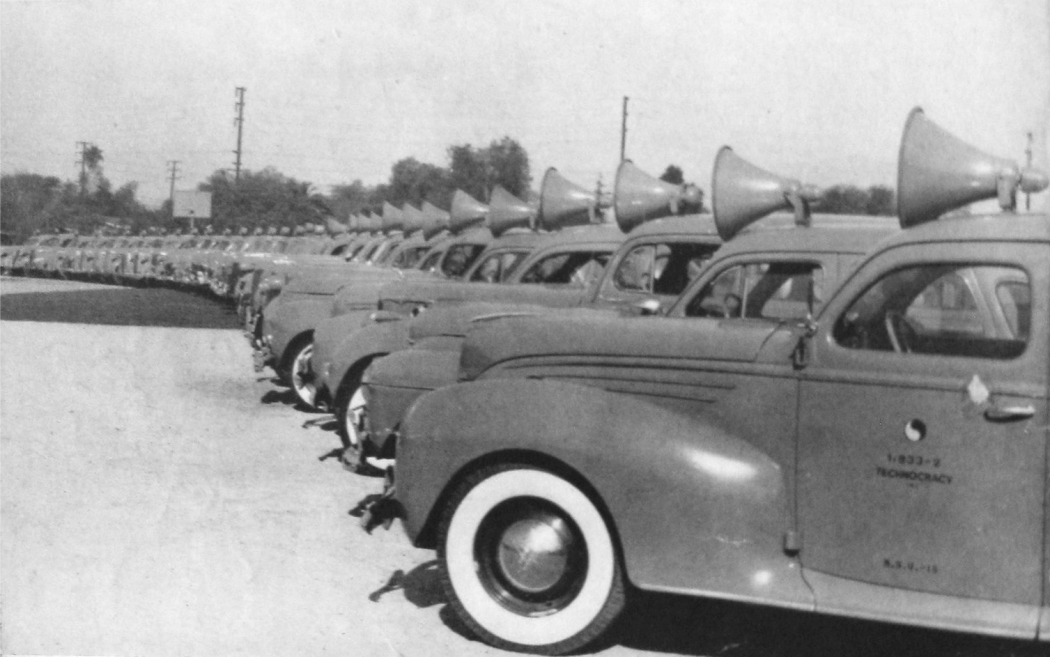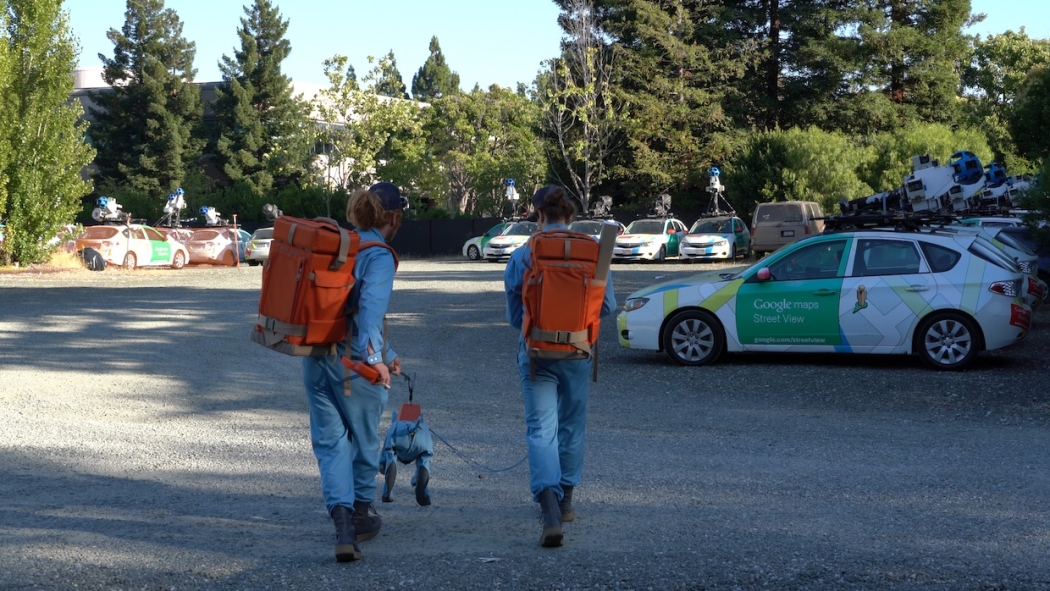The Dynamic Equilibrium among Energy-Consuming Devices
Artist talk with Peter Behrbohm, Markus Bühler and Jan Groos

About the event
“What you got to realize is, that for the first time you have to design a government not of human behaviour but a government of things because the things have become important.”
Howard Scott (1890-1970), continental director of Technocracy Inc.
On February 1st we take on the bizarre Technocrat movement, its overwhelming popularity in the 1930s and the subsequent disappearance into insignificance. We invite you to a panel with Jan Groos, founder of Futurehistories.today. and the creators of “The Technate” Markus Bühler and Peter Behrbohm who traced the route of “Operation Columbia”, a 10 mile long motorcade of “Technocracy-grey” vehicles driving from Los Angeles to Vancouver and back in 1947 to promote a society based on technology and a data-network connecting everything and everyone. While the movement itself soon fell into oblivion, an internet eventually did emerge in the stretch of land encircled by the Technocrats, different to the dynamic equilibrium among energy-consuming devices they foresaw.
Participants
Jan Groos is a researcher, filmmaker and podcaster. He studied fine arts at the Academy of Fine Arts Vienna and is currently working on a PhD thesis on “Sociotechnical Imaginaries of Algorithmic Governance” at the Centre for Sociological Theory (Kiel University). He is part of the DFG project "Governing Algorithms – A Sociology of the Algorithmic Art of Governing" led by Prof. Robert Seyfert. Jan runs the podcast Future Histories as part of his extended research practice.
Peter Behrbohm and Markus Bühler received their diploma degrees in architecture from Berlin’s University of the Arts. Peter's works are surgical interventions in public spaces and routines. He regards reality a medium that he uses to implant fictions. Markus’ work is driven by analytic and operative precision, often based on found narratives of varying media. Among others, they have been awarded the «BDA-SARP Award» for the best German graduation project, the «Max-Taut-Prize», the «Elsa-Neumann» Scholarship as well as the «MAK Schindler Scholarship Los Angeles», without which this project would not have been possible.

